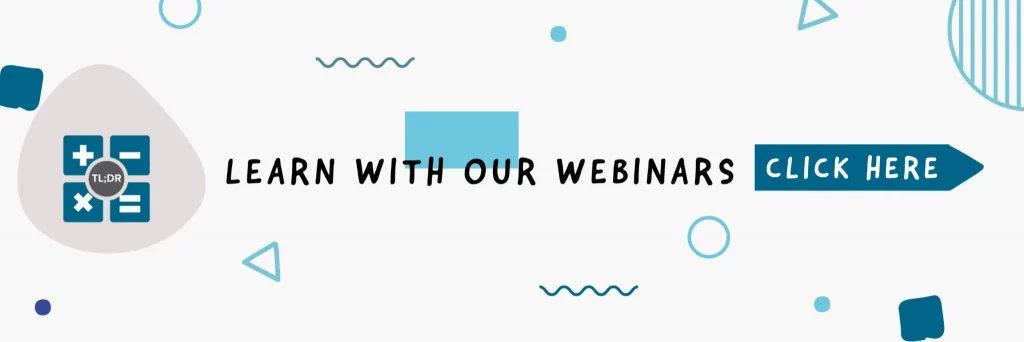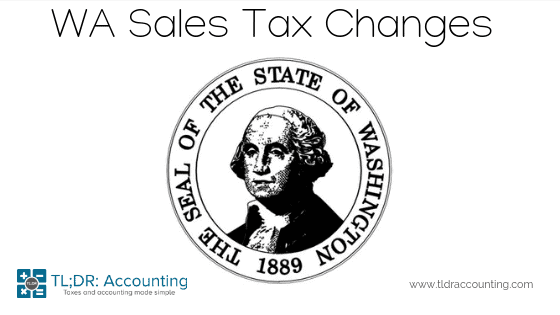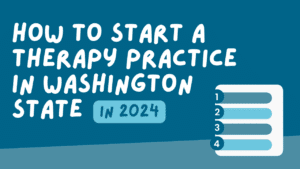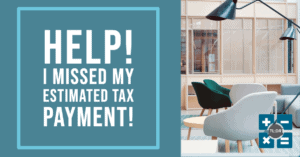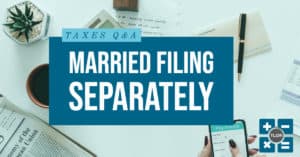Let me start by apologizing for the ungainly blog title, and then I’ll quote the summary of the change that will happen on July 1st as stated on the Washington State Dept of Revenue website:
“Starting July 1, 2019, the retail sales tax exemption for certain nonresidents of Washington state, on purchases of tangible personal property, digital goods, and digital codes, will no longer be available at the point of sale. Instead, these consumers may request a refund from the Department of Revenue for the state portion of the sales tax they paid.”
The article goes on to say that this refund is only available for certain areas.
There’s a lot to unpack here, so let’s take it one step at a time.
Goods
Do you sell tangible goods, digital goods, or digital codes to non-Washington residents? If yes, then this blog post is for you!
If you don’t know, then let’s define tangible goods, digital goods, and digital codes.
Tangible goods
Tangible goods are goods that you can touch: cars, cucumbers, cutlery, crayons, all sorts of things. It gets a little tricky when you try to distinguish “tangible property” from “real property.” Real property is stuff that’s permanently fixed or attached to the land or a building (yes, this includes buildings themselves). This article from the Department of Revenue gets into the distinction between real and tangible property. Don’t let the word “personal” throw you; in this sense it’s very much business property that can be moved.
Still with us? In short, tangible goods are physical items that aren’t considered real estate.
Digital goods
But what are digital goods? Fortunately, the Dept of Revenue defines them for us right here!
Digital goods are data, facts, information, sounds, music, images, videos, or any combination of these, when transferred electronically. That is to say, the movie The Matrix is a physical good when it’s on DVD, but it’s a digital good when it’s downloaded or streamed. Streaming is playing a song or video online through a service like Youtube or Netflix.
What does this definition exclude? Internet access, computer software, a few specialized items that we won’t get into at this stage, and this:
“The representation of a personal or professional service primarily involving the application of human effort.”
What does that mean? Basically, services. For example, when you hire TL;DR Accounting to help you with your taxes or your books, it’s not considered a digital good because it’s primarily the human effort of our hard-working team of specialists.
Digital codes
A digital code is exactly what it sounds like — a code you find in an email, through paper mail, or even on a Mountain Dew bottle — that entitles you to a digital good. The important point to remember is this: if the digital code is for a good that qualifies for exemption, then the code also qualifies.
Non-Washington Residents
Why does the Dept of Revenue care so much about whether your customer is a Washington resident or not? Let’s break it down:
-
- If your customer is a Washington State resident, then you charge sales tax at point-of-sale (POS) and then remit it to the Dept of Revenue on a regular basis (monthly, quarterly, or annually depending on your tax owed).
- If your customer is not a resident of WA, then it used to be the case that customers of certain areas were exempt, that is, they didn’t have to pay the tax at all. This is changing very soon.
- Starting next week, there will no longer be a point-of-sale exemption for your customers. Instead, customers from these areas can get a refund after the fact:
- US States: Alaska, Colorado, Delaware, Montana, New Hampshire, Oregon
- U.S. possessions: American Samoa
- Canadian provinces/territories: Alberta, Northwest Territories, Nunavut, Yukon
- That said, these individuals are ineligible for the refund (quoted from the website):
- people in the military stationed in Washington
- nonresident students attending schools in this state
- any other nonresident temporarily living in Washington
- Note on dual residents: If a dual resident is a resident of Washington State, they are not eligible for the refund.
Where Will the Customer Use Your Product?
We’ve talked about two requirements out of three so far: the type of good and the customer’s residence. The third requirement is that the product is used in one of the areas listed above. An illustrative example would be food at a restaurant. Since it’s generally for consumption on-site, it doesn’t qualify for this refund.
Marijuana Sales
As you might expect, marijuana is the exception. Marijuana sales are not eligible for this new refund.
Final Notes
- Customers can begin applying for this refund starting January 1st, 2020, for purchases made during the second half of 2019.
- They get only one refund request per year, it must be for more than $25.00 in taxes paid, and it must include receipts and proof of residency.
- Per this Dept of Revenue advisory, “proof of residency” has these requirements:
The identification must be a valid driver’s license issued by the jurisdiction in which the out-of-state residency is claimed or a valid identification card issued by the out-of-state jurisdiction. The identification must (A) bear the photograph of the holder, (B) show the holder’s residential address, (C) identify the holder’s name, and (D) be issued for the purpose of establishing residency.
A Quick Review
That was a lot to unpack! Here’s what we’ve covered:
- Starting July 1, 2019, non-Washington resident customers who buy tangible goods, digital goods, or digital codes will no longer be able to claim a point-of-sale tax exemption.
- Customers (from eligible areas only) may instead apply for a refund.
- Items must be used or consumed in these eligible areas and not in Washington.
- While it is now up to the customer to apply for refunds, it can still help to be able to inform your customers on the refund process:
- Once a year, a customer can apply for a refund of $25.00 or more for sales tax from the previous year. They must attach proof of residency.
TL;DR: If you are selling goods to customers across state lines you need to make some very quick changes. Contact us about the above!
